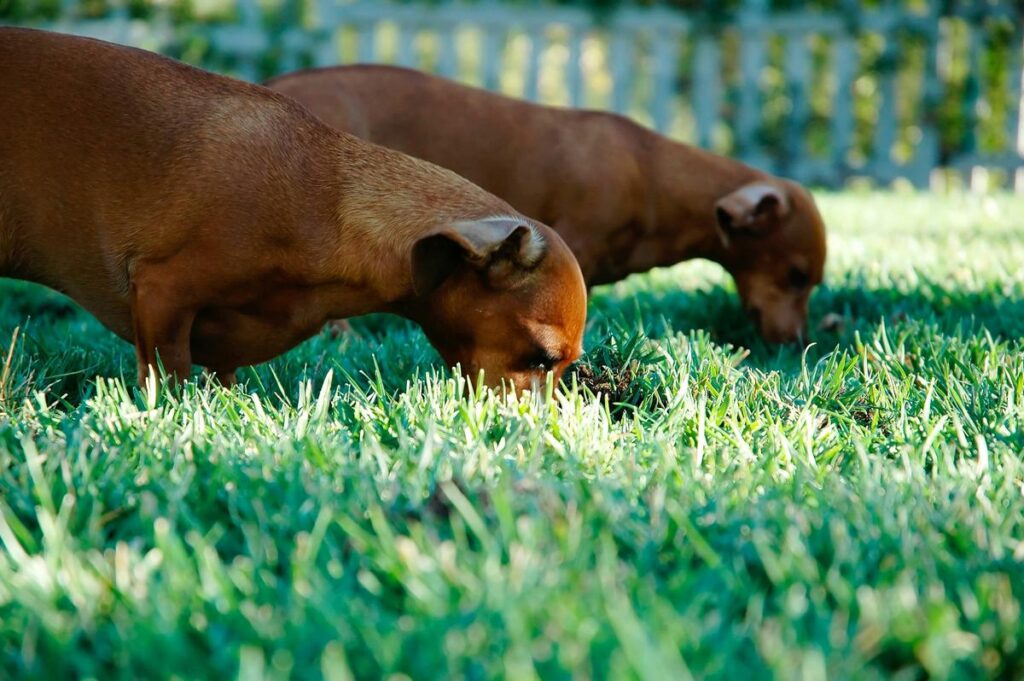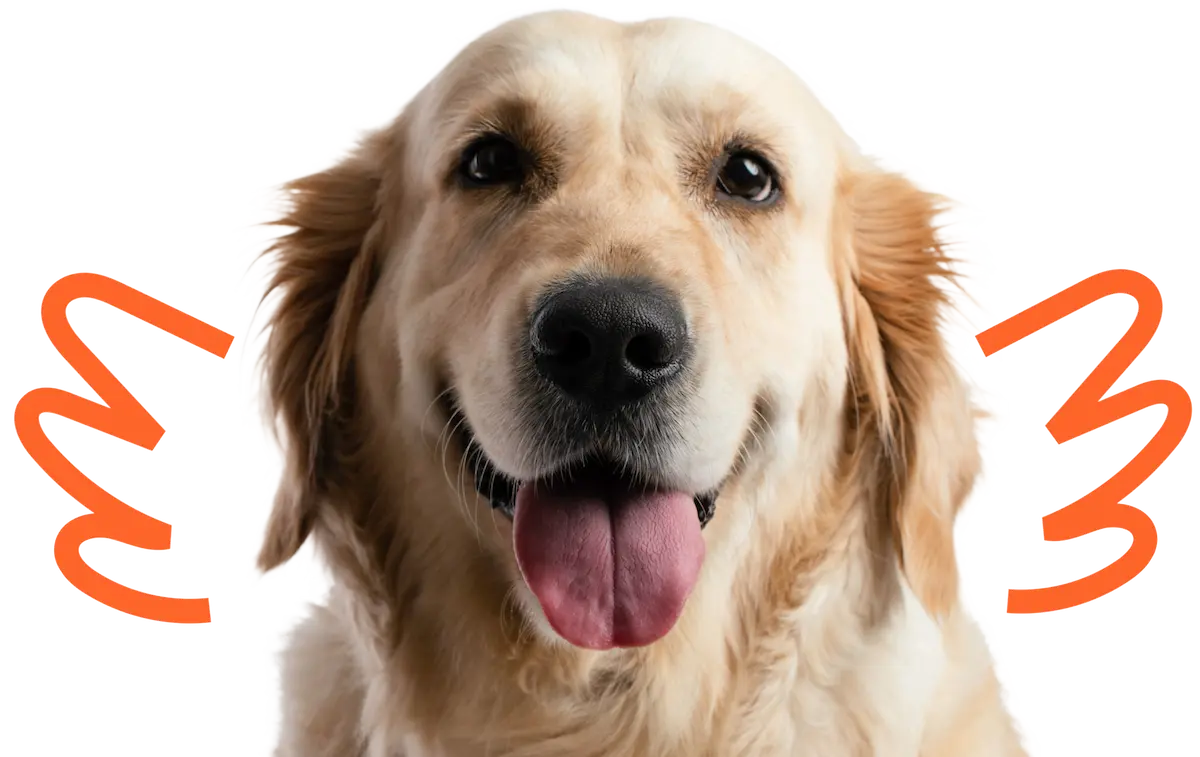Have you ever wondered, as you stroll through a sunlit park or along a muddy canal, “Why do dogs eat grass on walks?” You are definitely not alone! Here at GoWalkies, we have chatted with countless fellow dog lovers across the UK about this curious habit. Some call it their pup’s “salad days,” while others affectionately joke that they are harbouring a tiny cows in disguise. As joyful as these tales may be, it’s natural to wonder if grass munching signals something more serious. Let us explore, with expert insight and real-world relatability, what drives our dogs to nibble on nature’s green carpet and when, if ever, you should worry.
Common Reasons Dogs Eat Grass During Walks
The image of your dog pausing mid-walk to chew through a patch of grass is as British as wellies in the countryside. But why do dogs eat grass on walks? One of the most common reasons is simple: they like the taste. The texture and freshness, especially during spring and summer, seem to transform some pups into “gourmet grazers.” You’ll often see them root out just the right blade, as if choosing their favourite treat!
Beyond flavour, some dogs turn to grass out of boredom or as a way to pass time if they’re not feeling mentally stimulated. If you’ve noticed your dog snacking on grass when a walk feels more like a trudge than an adventure, it may just mean they are longing for extra play or exploration.
There’s also a widespread belief that dogs eat grass to make themselves sick, especially if they have an upset belly. However, studies have shown that only about 10 percent of dogs seem unwell before eating grass, and only 1 in 4 vomit afterwards. So, while it’s not unheard of, grass is usually not your dog’s go-to medicine cabinet.
Some experts suggest that grass provides extra fibre missing from a typical dog diet. While most quality diets cover your dog’s basic nutritional needs, the occasional green snack is unlikely to hurt.
Is Eating Grass Dangerous for Dogs?
Most UK dog owners find their dog’s grass-eating habits to be largely harmless but it is important to consider the potential risks. While nibbling on untreated grass usually poses no problem, there are several things to keep in mind. Urban parks or council-maintained greens may be treated with fertilisers, pesticides, or herbicides, which can be toxic if ingested. Always be cautious about where your pup chooses to snack.
There is also a slim chance your dog could ingest lungworm larvae, carried by infected slugs or snails. This risk is ever-present in the UK, where wet weather brings out plenty of slimy critters hiding within the grass. If you want more detail on common grass-eating risks, The Kennel Club offers excellent guidance on why dogs eat grass and what owners should watch for.
If your pup gobbles large quantities of grass, frequently vomits, or begins showing signs of digestive upset, it is time to consult your vet. Trust your instincts; you know your dog’s habits and quirks better than anyone.
How to Respond When Your Dog Eats Grass
So, what should you do when your dog stops mid walk for a green snack? First of all, don’t panic. Occasional, mild grass-eating is normal canine behaviour. If your walks often lead your four-legged friend to the nearest patch of greenery, consider these expert tips to keep them safe:
- Keep a Watchful Eye: Steer your dog away from grass in heavily fertilised or treated areas, especially in public parks or communal gardens.
- Regular Veterinary Care: Stay up-to-date on your pup’s flea, tick, and especially lungworm prevention treatments. The UK’s wet climate makes this a top priority!
- Offer Stimulation: If boredom is fueling their munching, try engaging brain games or more interactive walks. For example, changing your walking route or adding new toys can brighten their day and distract from the grass buffet.
- Observe for Symptoms: Take note if eating grass is accompanied by vomiting, diarrhoea, or a sudden change in behaviour. These can be warning signs that warrant a trip to the vet.
Creating joyful and purposeful walks not only helps prevent unwanted habits, but supports your dog’s overall mental and physical health. For more ways to enrich your dog’s outings, explore our guide to maintaining your dog’s mental and physical health.
Is Grass Eating a Sign of a Deeper Health Issue?
This is a question every caring owner eventually races to Google. For the vast majority of dogs, grass eating is not a sign of a dietary deficiency or illness. Dogs are naturally inquisitive, and many simply enjoy the texture or taste. Still, you know your dog better than anyone. A sudden increase in this behaviour, or pairing it with other symptoms such as frequent vomiting, lethargy, diarrhoea, or appetite loss, calls for prompt veterinary attention.
If you notice your dog becoming obsessed with eating grass, or showing signs of distress, jot down details to discuss with your vet. Keeping a short diary of your dog’s walks, meals, and health can be surprisingly helpful in pinpointing changes before they escalate.
If you’re worried about dietary balance, consult with your vet about the best dog food options, and always ensure your pup’s diet is well-rounded. Sometimes, small changes make a big difference in curbing odd cravings. If you’re curious about other dog health quirks that might need attention, you might find our post on often ignored dog hiccup reasons helpful, too.
Busting the Myths: Separating Fact from Fiction
As with many popular dog walking dilemmas, myths abound about why dogs eat grass on walks. One enduring belief is that grass eating is a dog’s way of self-medicating for an upset stomach. Yet, as we have discussed, research shows this is rare. For most dogs, grass is just another interesting texture or taste to explore.
Other myths say that eating grass means your dog is lacking in nutrition. In reality, healthy, well-fed dogs often nibble at grass out of boredom, curiosity, or pure enjoyment—not necessity.
For those who worry about “public perception,” rest assured: most UK dog lovers understand the quirks of canine behaviour. Together, we can celebrate these charming habits while staying informed and cautious on walks. If you want more science-backed answers, the official UK resource from The Kennel Club on why dogs eat grass is a great read.
Top Tips for Safer, Happier Walks
At GoWalkies, we are passionate about making every walk bright and worry-free for people and their pups. In addition to the joy of discovering your dog’s favourite patches of grass (and the comical “lawn mower” moments!), you can take a few practical steps to keep your walks both safe and stimulating:
- Stick to well-known, untreated grassy areas whenever possible.
- Rotate your routes to keep walks fresh and provide built-in distraction for bored grazers.
- Bring along favourite treats or interactive toys to channel your dog’s focus away from grass munching.
- Maintain up-to-date health checks and parasite prevention so you can explore with confidence.
- Be mindful of your dog’s energy and mood. Sometimes, a change of pace is all it takes!
Building variety and enrichment into your routine can help address many quirky canine habits. If you’re ready to refresh your walking routines or need more inspiration, our team created a handy guide on training your dog to walk on a leash which ties perfectly into safer outings for you and your furry friend.
So, why do dogs eat grass on walks? More often than not, it is out of curiosity, taste, or a bit of leafy fun, the same curiosity that makes our daily adventures together so rewarding. Most grassy nibbles are absolutely harmless, but as always, being a responsible owner means keeping your eyes peeled for potential risks, supporting your dog’s health, and enjoying every wag along the way. At GoWalkies, we believe every walk is a chance to strengthen your bond, discover new quirks, and celebrate the joyful, sometimes hilarious world of canine behaviour. Next time your “lawn mower” dog stops for a salad snack, you can walk on confidently, knowing you have all the know-how you need for safer, happier outings!


